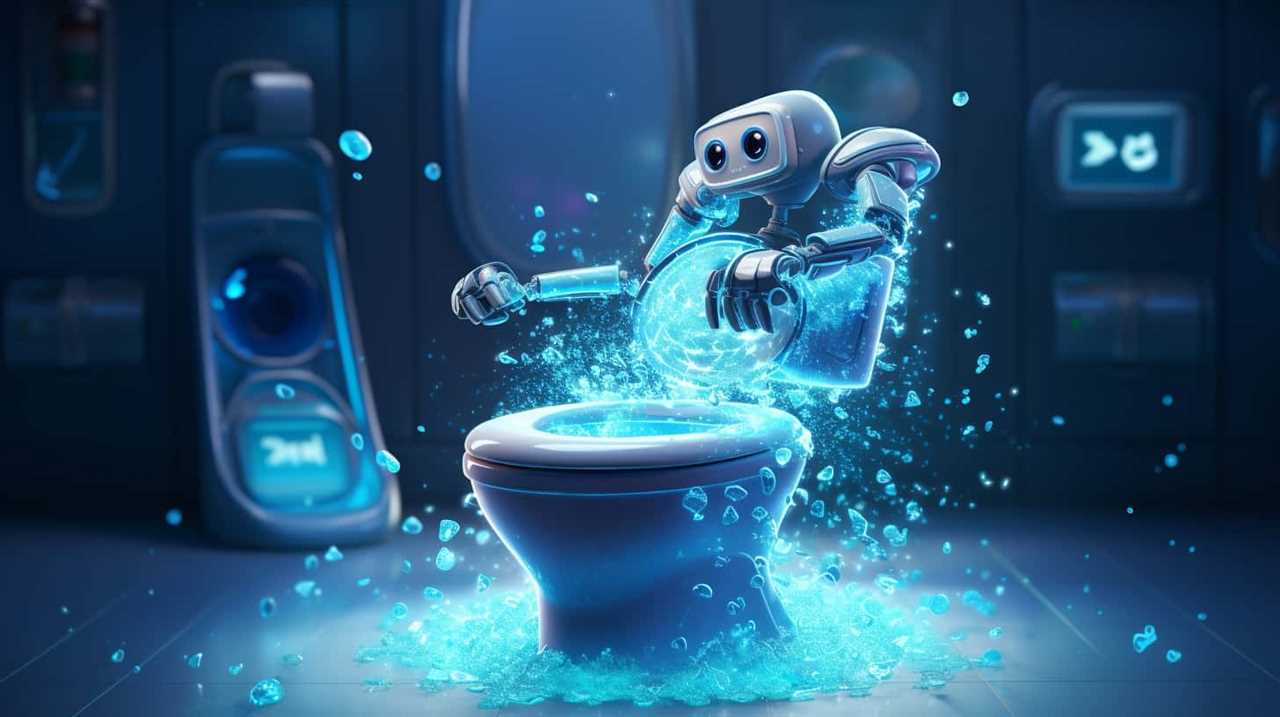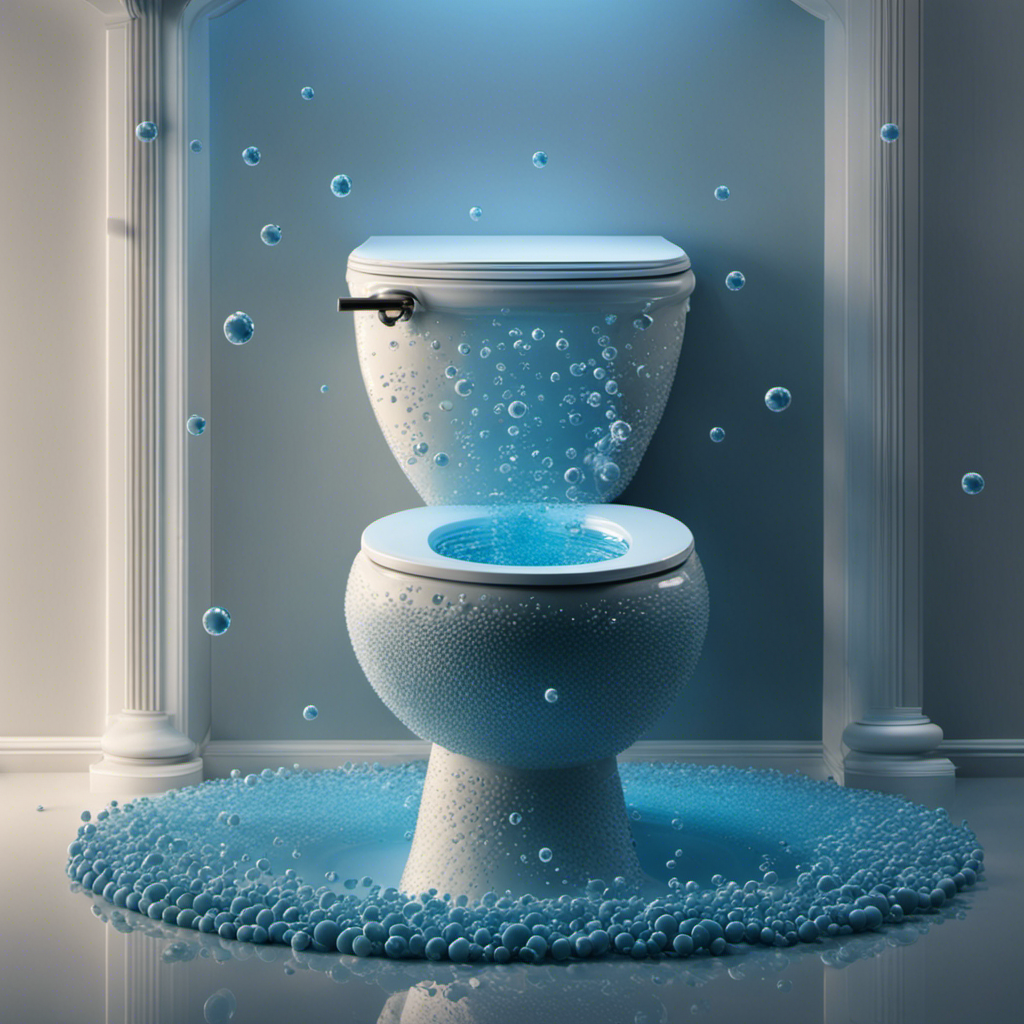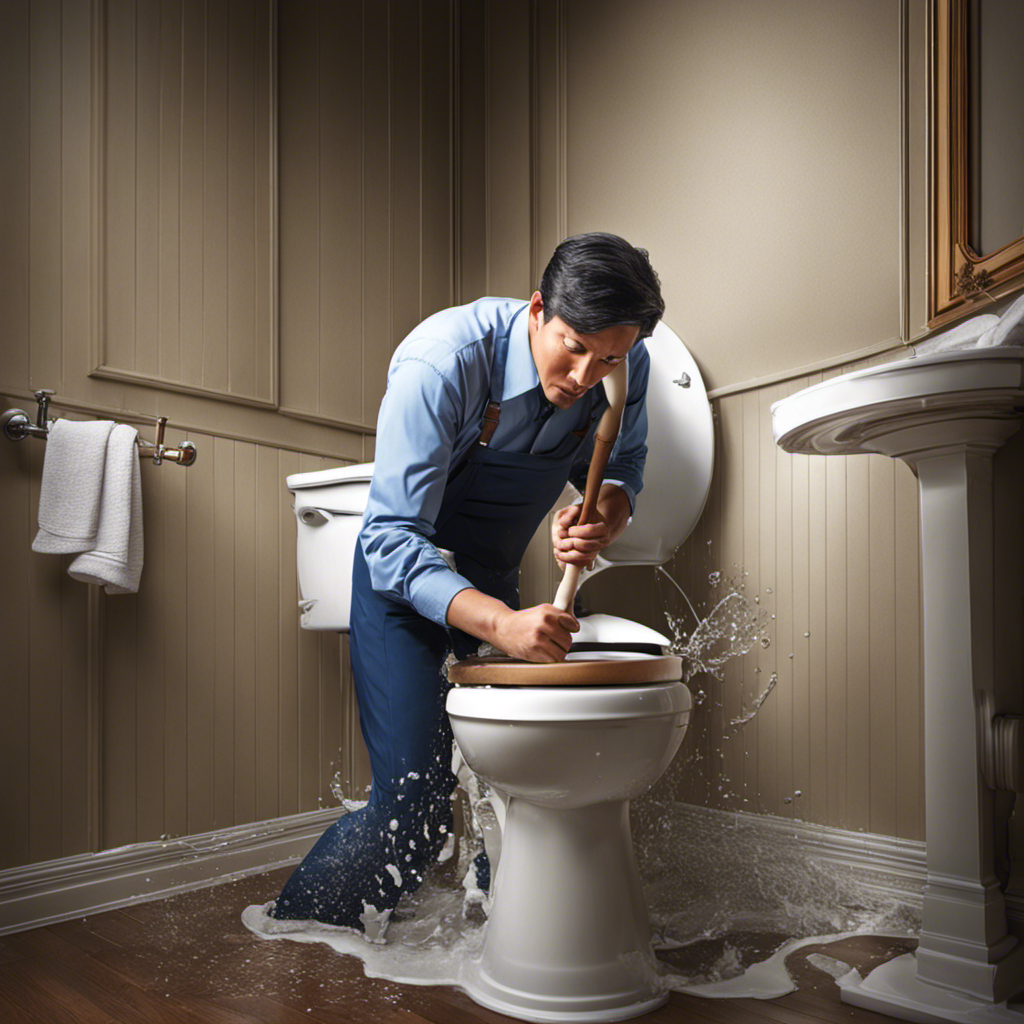You might be wondering: is it okay to just flush cotton swabs down the toilet? The reality is, it’s not as benign as it appears.
In fact, disposing of cotton buds in the toilet can have serious environmental consequences. From damaging plumbing systems to posing risks to marine life, the impact is far-reaching.
But don’t worry, we’re here to provide you with the facts, alternatives, and proper disposal methods to help you make an informed decision.
Let’s dive in.

Key Takeaways
- Cotton buds should not be thrown in the toilet as they contribute to plastic pollution and do not decompose easily.
- Flushing cotton buds can cause plumbing problems and sewer blockages, leading to costly repairs and health hazards.
- Cotton buds pose risks to marine life and ecosystems as they can be mistaken for food, cause internal injuries, and contaminate water with chemicals.
- Proper disposal methods and educating others about the environmental impact of cotton buds are important for reducing pollution and protecting the environment.
Environmental Impact
The environmental impact of throwing cotton buds in the toilet can be significant. When discarded this way, cotton buds contribute to plastic pollution, which is a growing concern worldwide. Made primarily of plastic, these small items don’t decompose easily and can end up in our oceans and waterways, posing a threat to marine life.
Plastic pollution is detrimental to the environment, as it disrupts ecosystems and harms wildlife. Proper waste management is crucial in addressing this issue. Instead of flushing cotton buds down the toilet, it’s recommended to dispose of them in the appropriate waste bin.
This way, they can be properly handled and sent for recycling or disposal in a controlled manner. By practicing responsible waste management, we can help reduce the negative environmental impact of plastic pollution caused by items like cotton buds.
Plumbing Problems
To understand the potential plumbing problems associated with throwing cotton buds in the toilet, let’s consider the consequences of our actions. While it may seem convenient to dispose of cotton buds in the toilet, doing so can lead to a range of issues that can affect the overall plumbing maintenance and toilet hygiene.
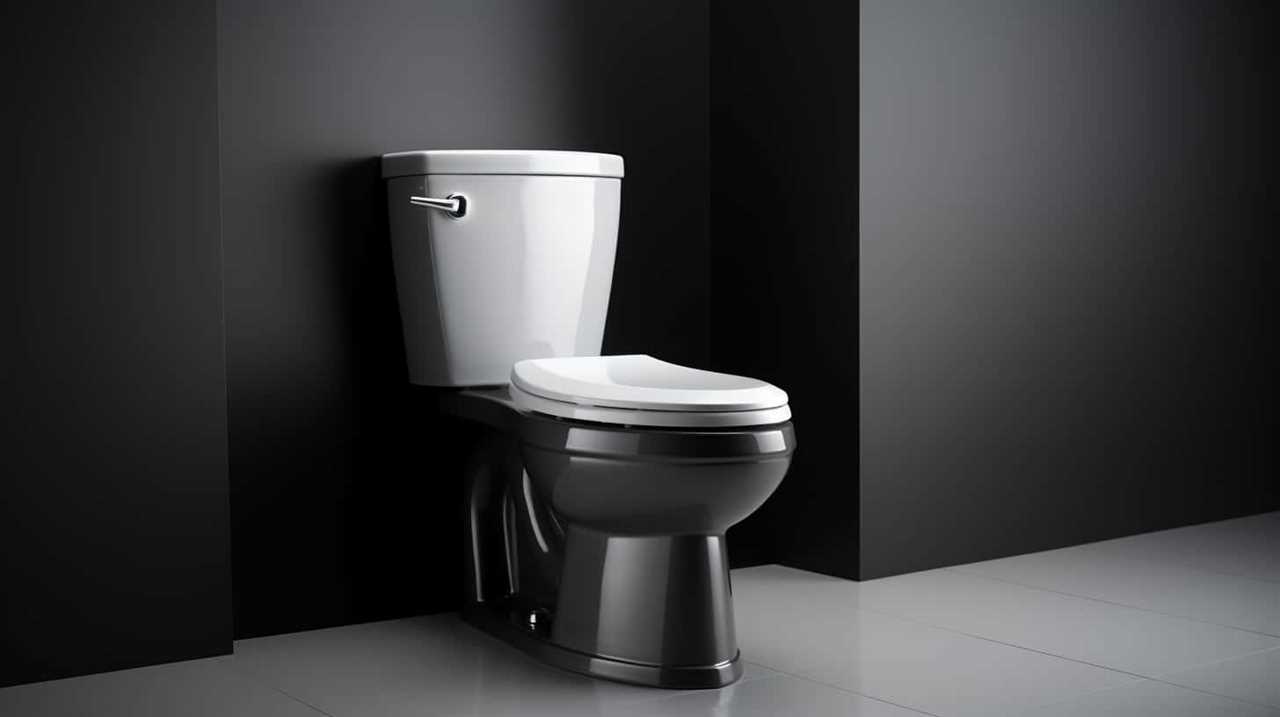
Here are three reasons why throwing cotton buds in the toilet is a bad idea:
- Clogging: Cotton buds don’t dissolve in water and can easily get stuck in the pipes, causing blockages and potentially leading to costly repairs.
- Sewage backup: When cotton buds accumulate in the pipes, they can restrict the flow of wastewater, leading to sewage backups and unpleasant odors.
- Environmental impact: Cotton buds that make their way into the sewage system can end up in rivers and oceans, polluting the water and harming marine life.
To maintain a healthy plumbing system and ensure proper toilet hygiene, it’s best to dispose of cotton buds in the trash.
Damage to Sewer Systems
Throwing cotton buds on the toilet can cause significant damage to sewer systems. One of the main issues is sewer blockages, as cotton buds don’t break down easily and can accumulate in the pipes, leading to clogs and backups.
Additionally, the environmental consequences of this improper disposal can be severe, as cotton buds can end up in water bodies, causing pollution and harm to marine life.

Sewer Blockages and Backups
We’ve seen numerous sewer blockages and backups caused by the improper disposal of cotton buds in toilets. These blockages not only result in inconvenience and costly repairs but also pose significant environmental concerns. It’s crucial to practice responsible waste management to prevent such issues from occurring.
- Cotton buds, when flushed down the toilet, can accumulate in the sewer pipes, causing clogs and blockages.
- These blockages can lead to sewer backups, where wastewater is forced back into homes and streets, creating health hazards.
- Damage to sewer systems can result in the release of untreated wastewater into the environment, contaminating water sources and harming aquatic life.
Environmental Consequences of Disposal
We have witnessed the detrimental effects of improper disposal on sewer systems, specifically the damaging consequences caused by the accumulation of cotton buds in toilet pipes. When cotton buds are flushed down the toilet, they can easily get stuck in the sewer pipes, leading to blockages and backups.
However, it’s not just the cotton buds themselves that pose a problem. These buds are typically made of plastic, which is non-biodegradable and can persist in the environment for hundreds of years. Over time, the accumulation of plastic waste in the sewer system can cause significant damage, resulting in costly repairs and maintenance.
Additionally, the presence of plastic waste in the sewer system increases the risk of water contamination, as the chemicals and microplastics from the cotton buds can leach into the water supply.

Proper disposal of cotton buds in the trash can help prevent these environmental consequences and protect our sewer systems and water sources.
Risks to Marine Life
When cotton buds are flushed down the toilet, they contribute to the pollution of our oceans and pose significant risks to marine life.
The plastic stems and cotton tips can be mistaken for food by marine animals, leading to ingestion and internal injuries.
Additionally, the chemicals used in the production of cotton buds can contaminate the water, further impacting the delicate ecosystems of our oceans.

Cotton Bud Pollution
Throwing cotton buds in the toilet can contribute to cotton bud pollution and pose risks to marine life. The improper disposal of cotton bud waste can lead to water pollution, which has detrimental effects on the environment.
Here are three reasons why cotton bud pollution is a concern:
- Microplastic contamination: Cotton buds are made of plastic and can break down into microplastics when they end up in the water. These tiny particles can be ingested by marine organisms, causing harm to their digestive systems and overall health.
- Habitat destruction: Cotton buds can accumulate and form blockages in water systems, affecting the natural flow and disrupting the habitats of marine life. This can lead to the displacement and even death of various species.
- Chemical exposure: Cotton buds often come into contact with chemicals such as cleaning agents or personal care products. When they enter the water, these chemicals can leach out and contaminate marine ecosystems, posing a threat to aquatic organisms.
To protect marine life and prevent water pollution, it’s important to dispose of cotton buds properly in designated waste bins.
Impact on Ecosystems
Continuing the discussion on cotton bud pollution, the improper disposal of these items in toilets poses significant risks to marine life and their ecosystems.

When cotton buds are flushed down toilets, they can end up in water bodies such as rivers, lakes, and oceans. This can have a detrimental impact on wildlife, particularly marine animals. The plastic stems of cotton buds can be mistaken for food by marine creatures, leading to ingestion and potential harm.
Additionally, the cotton fibers can entangle and suffocate marine animals, further exacerbating the problem. The pollution prevention of cotton buds in toilets is crucial to safeguard marine ecosystems.
Proper disposal methods, such as placing cotton buds in designated waste bins, can help prevent these items from entering water bodies and causing harm to wildlife. By being mindful of our actions, we can contribute to the preservation of marine life and their habitats.
Legal Consequences
Using cotton buds in the toilet can result in severe legal consequences for us. The improper disposal of these small plastic items can lead to environmental pollution and harm aquatic ecosystems. It’s essential to understand the potential legal actions that can be taken against individuals who disregard proper waste management practices.

Here are three key points to consider:
- Environmental regulations: Many countries have strict laws in place to protect the environment from pollution. Disposing of cotton buds in toilets can violate these regulations and attract fines or legal penalties.
- Water pollution: Cotton buds can clog pipes and sewage systems, leading to blockages and overflows. This can cause contamination of water sources and harm aquatic life, which may result in legal actions taken to safeguard the environment.
- Individual responsibility: Each person has a role to play in ensuring proper waste disposal. Ignoring this responsibility can’t only have legal consequences but also contribute to the degradation of our environment.
It is crucial to be aware of the legal implications and take appropriate actions to protect our environment and avoid facing legal actions.
Proper Disposal Methods
To ensure proper waste management, we should dispose of cotton buds in a designated container or bin instead of flushing them down the toilet. Flushing cotton buds can lead to environmental concerns and contribute to irresponsible waste management practices.
When flushed, cotton buds can end up in waterways, causing pollution and harm to aquatic life. Additionally, these buds can clog pipes and sewage systems, leading to costly repairs and maintenance.
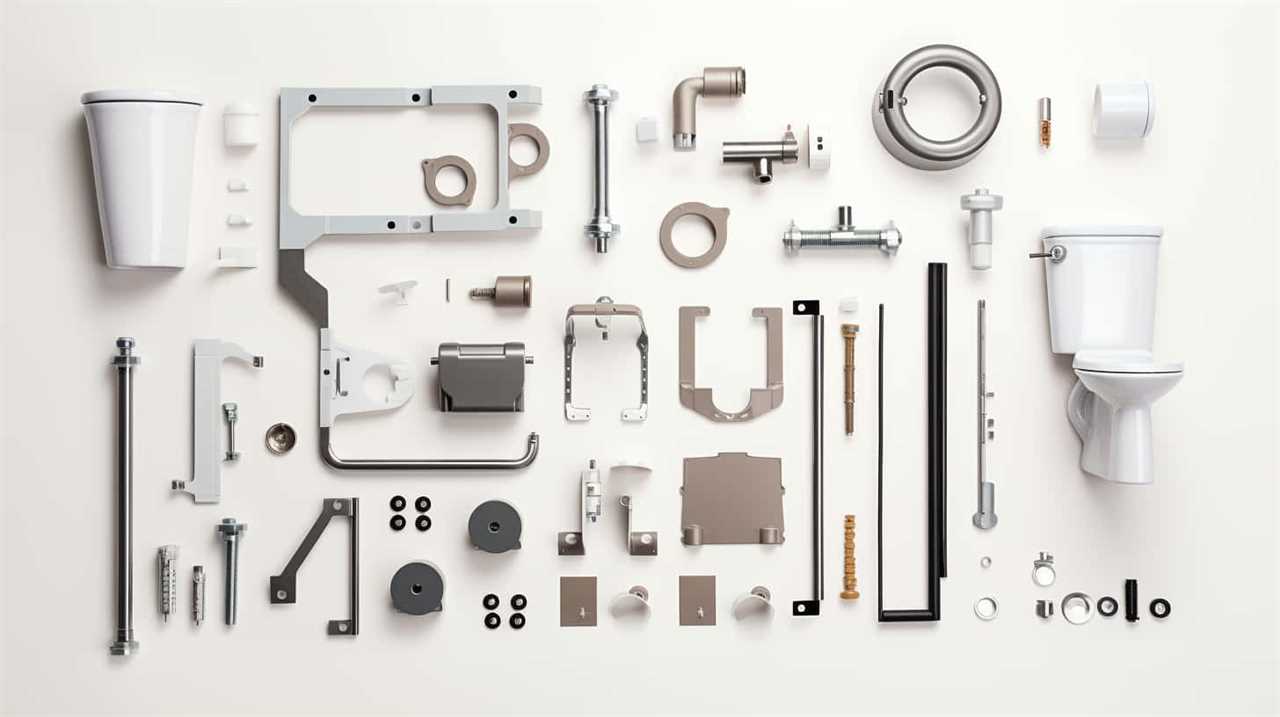
By disposing of cotton buds in a designated container or bin, we can practice responsible waste management. This ensures that they’re properly disposed of and can be handled by waste management facilities in an appropriate manner.
Let’s do our part in protecting the environment and promoting responsible waste management by disposing of cotton buds correctly.
Alternatives to Toilet Disposal
As we continue our discussion on proper waste management, it’s important to explore alternative methods for disposing of cotton buds, rather than flushing them down the toilet. Here are some alternatives to consider:
- Use toilet paper: Instead of using cotton buds, you can use toilet paper to clean your ears. Simply wrap the toilet paper around your finger and gently clean the outer part of your ear.
- Switch to biodegradable products: Look for cotton buds that are made from biodegradable materials. These products are designed to break down naturally over time, reducing their impact on the environment.
- Dispose of cotton buds in a bin: If you still prefer using cotton buds, make sure to dispose of them in a bin instead of flushing them down the toilet. This helps prevent clogs in the plumbing system and reduces the risk of environmental pollution.
Educating Others
To promote responsible waste management practices, we can educate others on the importance of avoiding the improper disposal of cotton buds in toilets.

Educational campaigns are crucial for raising public awareness about the negative consequences of flushing cotton buds down the toilet. It’s vital to understand that cotton buds aren’t designed to break down easily in water and can cause blockages in pipes and sewage systems.
These blockages can lead to costly repairs, environmental damage, and health risks. By spreading awareness through informative campaigns, we can encourage individuals to dispose of cotton buds properly in designated waste bins.
It’s essential to emphasize the importance of responsible waste management and highlight alternative disposal methods, such as placing cotton buds in sealed bags before throwing them in the trash.
Together, we can make a significant impact on reducing the improper disposal of cotton buds and protecting our environment.

Conclusion
In conclusion, we must emphasize the importance of responsible waste management practices and refrain from throwing cotton buds in the toilet. Improper disposal of cotton buds can have detrimental effects on both the environment and our health. Here are three key reasons why it’s essential to dispose of cotton buds properly:
- Environmental Impact:
- Flushing cotton buds leads to water pollution, as they can end up in rivers and oceans, harming marine life.
- Cotton buds aren’t biodegradable and can contribute to the accumulation of plastic waste in landfills.
- Plumbing Problems:
- Cotton buds don’t dissolve easily in water, causing blockages in pipes and sewage systems.
- These blockages can lead to costly repairs and inconvenience for homeowners.
- Personal Hygiene:
- Cotton buds aren’t designed to be flushed, and their presence in toilets can compromise proper hygiene.
- Proper disposal in waste bins helps maintain cleanliness and prevent the spread of bacteria and germs.
Frequently Asked Questions
Are Cotton Buds Biodegradable?
Cotton buds, commonly used for personal hygiene, are not biodegradable. It is not recommended to throw them in the toilet as they can contribute to water pollution. Sustainable alternatives include reusable cotton pads or bamboo cotton buds.
Can Flushing Cotton Buds Down the Toilet Cause Blockages in the Household Plumbing System?
Flushing cotton buds down the toilet can pose a risk of toilet blockages. The environmental impact of cotton buds in plumbing systems is significant. It is best to dispose of cotton buds in a waste bin to avoid potential issues.
Do Cotton Buds Pose a Risk to Marine Life if They End up in the Ocean?
Cotton buds, if they end up in the ocean, can contribute to marine pollution and have a detrimental impact on wildlife. It is important to dispose of them properly to prevent harm to our oceans and its inhabitants.

What Are the Legal Consequences of Throwing Cotton Buds in the Toilet?
Flushing cotton buds down the toilet can lead to sewage system clogs and there are legal penalties for improper disposal. It’s important to properly dispose of cotton buds in the trash to avoid these consequences.
How Can I Properly Dispose of Cotton Buds to Minimize Environmental Impact?
When it comes to properly disposing of cotton buds and minimizing environmental impact, we should explore eco-friendly alternatives and adhere to proper disposal methods. Let’s discuss the best ways to do so.
Conclusion
In conclusion, throwing cotton buds in the toilet can have severe consequences for the environment, plumbing systems, and marine life. It’s important to remember that improper disposal of these items can lead to clogs and blockages in sewer systems.
A staggering statistic reveals that approximately 1.5 million cotton buds are flushed down toilets each day in the UK alone. This highlights the urgent need for proper education and awareness regarding the appropriate disposal methods for cotton buds.
